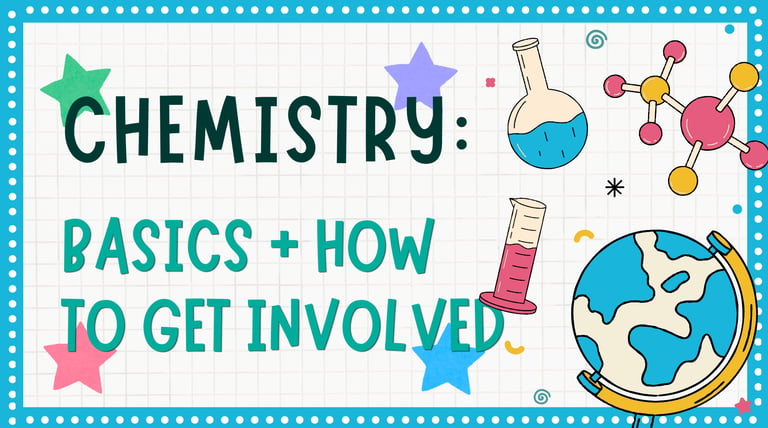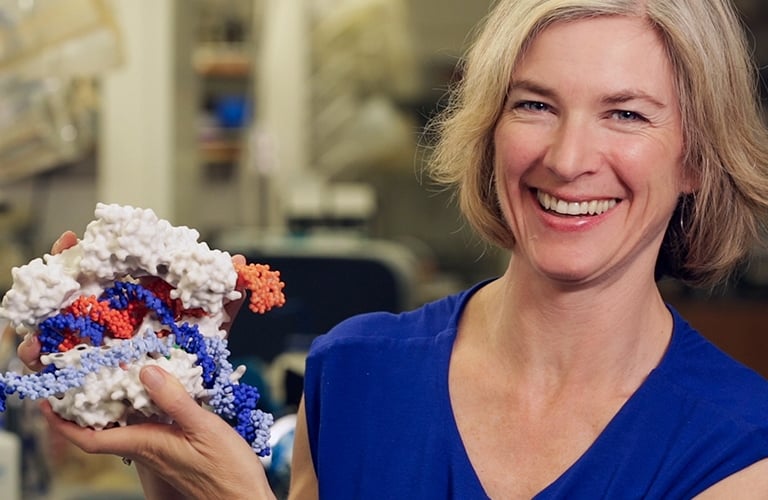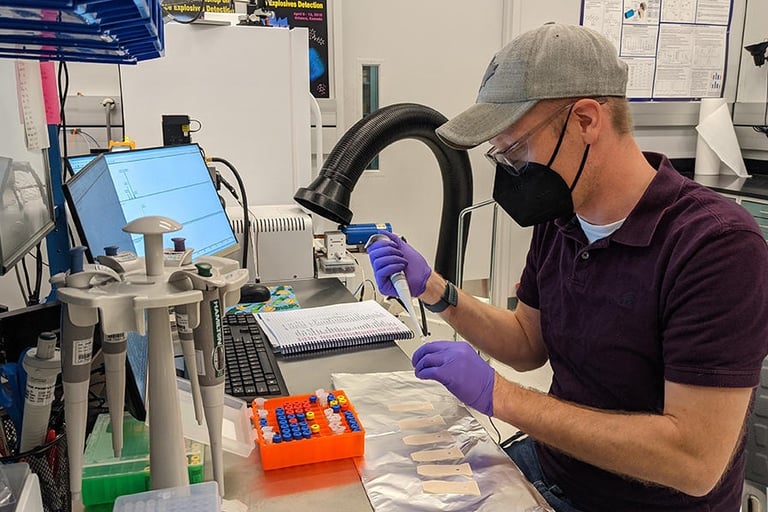Chemistry! The Basics and how to get involved
Concepts, Resources, and Prominent Historical Figures


This post explores the ins and outs of chemistry, some real-world applications, and how to get involved.
Chemistry is a very general term, mainly encompassing the study of matter and how elements react and form new substances. Some topics include atomic structures, intermolecular forces and bonding, chemical reactions, kinetics, thermodynamics, and equilibrium. Understanding these fundamentals is key to delving into implementations of this constantly developing field
Atomic Structures:
Our Universe is composed of at least 118 elements, but it is unknown exactly how far this number extends. These elements are grouped into families with similar properties; alkali metals, alkaline earth metals, chalcogens, halogens, noble gasses, and more.
Reactions:
Chemistry is all about how different compounds interact, and there are many different types of reactions from combustion, acid-base, precipitation, neutralization, etc. There are chemical processes happening every day, like rusting of metals, fermenting yeast in baked goods, and emulsions like mayonnaise.
Thermodynamics:
This is all about the relationships between heat (energy) and work. One example of this is why you feel especially cold getting out from a pool, shower, etc. Water evaporation is an endothermic process, meaning the water absorbs heat from your body when it evaporates. There are numerous laws of thermodynamics, the first and most fundamental being. Energy can neither be created nor destroyed; it can just be converted from one form to another.
Equilibrium:
Most reactions contain a reactant that gets converted into a product, however this process is often reversible and continuous. This is equilibrium; the point at which the forward and reverse reactions are taking place at the same speed. Systems in equilibrium are in harmony, but it doesn’t mean that reactants and products are in equal amounts.
Professions in Chemistry
Different implementations are widely found, and many fields can be pursued with a chemistry background.
Toxicology: Scientists analyze chemicals and substances to test if they are harmful to the environment and living organisms, like us!
Chemical Engineering: These engineers design and implement manufacturing processes for products like gasoline, detergents, and paper.
Pharmaceuticals: Medical chemists are focused on drug discovery and testing drugs for efficacy.
Research: Merging with biology, many biochemists study chemicals and biological processes, most commonly cell development and growth/inhibitors, DNA replication and manipulation, and more.
Forensic Science: Chemistry is a key to understanding a crime scene; scientists collect DNA and analyze it, and often present their findings in court.
Female Pioneers:
Marie Curie: Curie is one of the most well-known and influential women in science. She is remembered for her discovery of radium and polonium, and her huge contribution to finding treatments for cancer. She launched radiation in medicine and used radiation to treat tumors.
Jennifer Doudna: One of the pioneers of CRISPR, Jennifer Doudna has made significant contributions to gene editing and cancer research. CRISPR has the potential to correct genetic variants with the hope of treating many human genetic diseases, such as inherited blood disorders. Doudna was also awarded a Nobel Prize in 2020 for Chemistry.
How to get Involved:
If you are passionate about chemistry there are multiple ways you can pursue it further:
School Courses: Many high schools offer the AP Chemistry class, which gives an insight into a college-level chemistry course. In addition to a challenging curriculum, it entails many labs such as titrations, spectrophotometry, and combustion analysis.
Science/Chemistry Olympiad: These nation-wide Olympiads are open to all high school students in the U.S, and have chemistry focused events that include graded written exams and labs. Winning teams go on to compete at the national level, with the top students in the country.
Chemistry Challenge: Hosted by the CEF, this nationwide challenge, You be the Chemist, is a great way to apply your knowledge and win! check it out here!
Research Programs: Many prestigious universities have programs for high school and undergraduate students to pursue an internship or research position, such as UC Berkeley, UC San Diego, Stanford and more. Search up "pre-college programs" at the universities to find summer courses and more.
Boston University's RISE program is a great internship opportunity that offers hands-on work.
If interested in medicine internships in general, check out opportunities by UCSF (CA) and the Wistar Institute (PA).
For more internships, join IntelliHer today!
Undergraduate Degrees:
Some of the best schools for Chemistry include UC Berkeley, Caltech, UChicago, and Columbia! Pursuing an undergraduate degree in chemistry at any of these schools will expose you to opportunities and career pathways!
IntelliHer
Our IntelliHer newsletters and blog posts have many more opportunities on how to get involved! Join today!
Chemistry is a huge part of everyday life, and encompasses much more than what meets the eye. Between working on a crime scene and developing drugs, the possibilities in this field are endless. New technology is constantly being developed, so explore and keep discovering!







